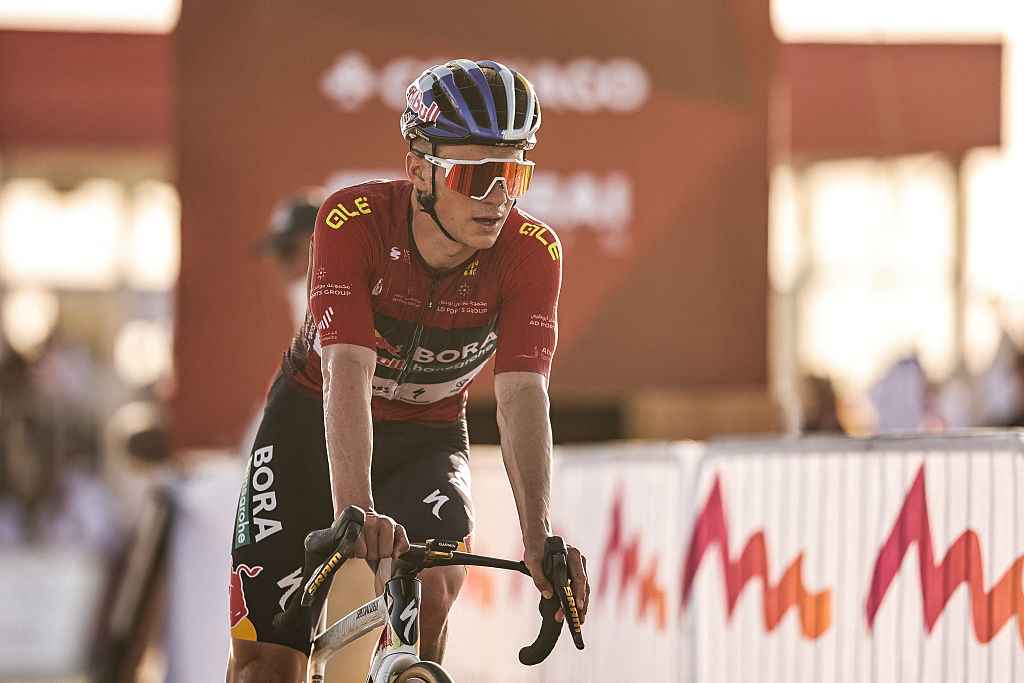Tour Down Under evolves in 2011
How Meyer ended the sprinter's dominance
The latest race content, interviews, features, reviews and expert buying guides, direct to your inbox!
You are now subscribed
Your newsletter sign-up was successful
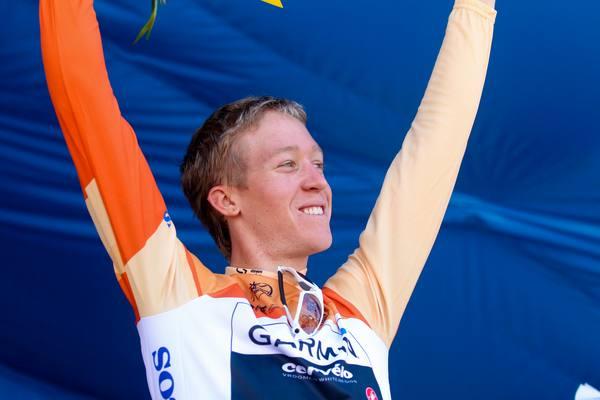
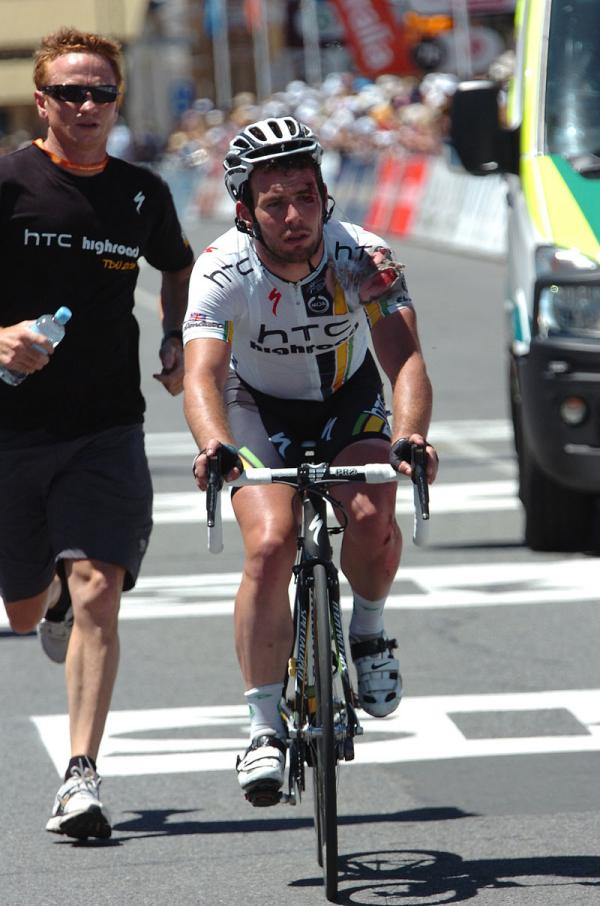
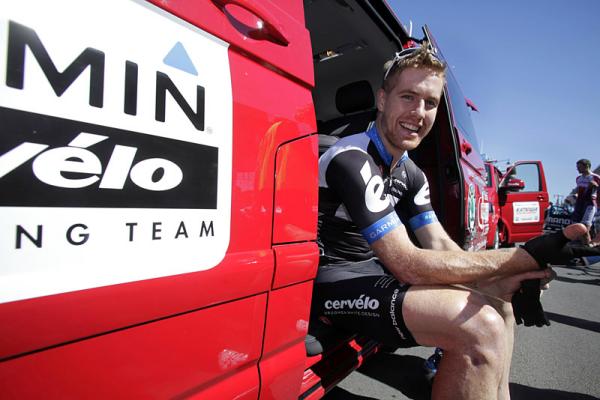
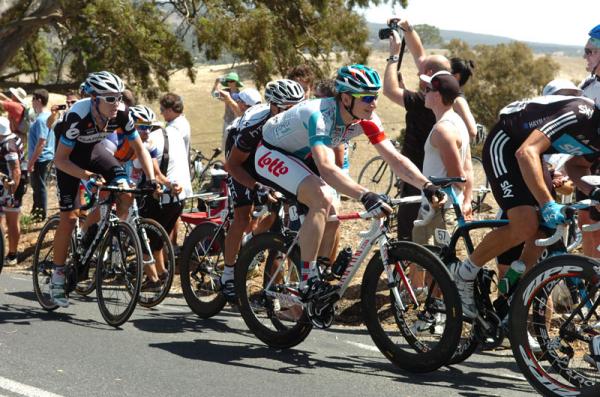
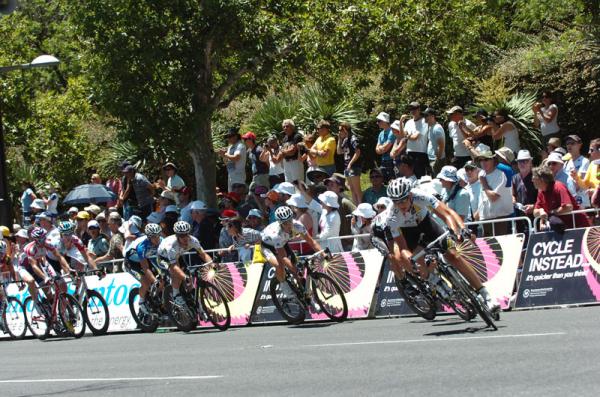
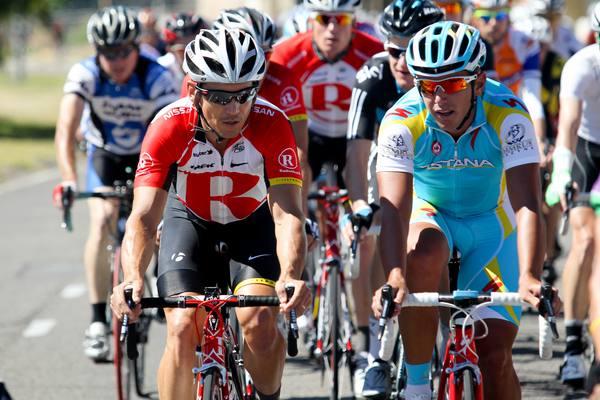
In a six-stage race custom made for sprinters, expectations were that the inclusion of three of the world's best fast men would result in a stage win for at least one of them. Mark Cavendish, Tyler Farrar and Andre Greipel were the headline acts for the 2011 Tour Down Under; three men out of a field of 133 - 16 of which were classed as sprint specialists.
Garmin-Cervélo's Cameron Meyer has become the first non-sprinter since 2006 to take the Tour Down Under's overall prize. A four-time world champion on the track; more recently becoming back-to-back winner of the Australian national time trial title; self-confessed "little scrawny Cameron".
So what were the factors at play in this year's first race of the World Tour that kept Cavendish, Farrar and Greipel away from the overall winner's podium?
Some sprinters can climb too
Of the noted speed men, Matt Goss was perhaps the most consistent of performers; this came down to the fact that he had his climbing legs with him when it came to the stages that mattered most – stages one, three and five.
There was one day however, that proved pivotal to Goss' overall performance: stage three between Unley and Stirling. His ride had been set up well, with HTC-Highroad teammates Bert Grabsch and Bernhard Eisel pushing the pace as the peloton took on the Stirling circuit but luck just wasn't on Goss' side.
The in-form Australian would finish third due to an amazing recovery aided by Mark Renshaw and the ochre leaders' jersey lost the day before was his again - but the damage had been done as directeur sportif Allan Peiper told Cyclingnews post-race.
The latest race content, interviews, features, reviews and expert buying guides, direct to your inbox!
"It was good he got the jersey back but we were shooting for a stage win and he got a puncture with 15km to go after he crashed yesterday before the finish so we've missed vital points two days in a row, vital seconds that will come down to GC standings," said Peiper, obviously unaware that Goss would eventually finish the Tour Down Under second overall by just two seconds.
One man determined to see Goss considered as one of the world's best sprinters along with Cavendish, Farrar and Greipel was Neil Stephens.
"Matt Goss had a great finish to the season last year and he basically backed it off just a little bit," Stephens told Cyclingnews. "He prepared really hard throughout the off-season and he's now sprinting really well... It's not that everyone else is going bad I think that perhaps you're right to say that Mark and Tyler are probably not 100 percent but it's actually Matt Goss who's turned up the heat."
Position is everything
It was billed as the showdown of the 2011 Tour Down Under but in the Mark Cavendish versus Andre Greipel grudge match, we were greeted with fizzle rather than fireworks. Greipel, in his first race for new outfit Omega Pharma-Lotto finished the better of the two but was lacking the winning element that had given him the ochre jersey in 2008 and 2010.
Greipel's stage results tell an interesting story, with the German finishing second; 76th; second, 15th; 27th and seventh throughout the week. When Greipel left HTC for the Belgian outfit he took Marcel Sieberg, Adam Hansen and Vicente Reynes – all key members of his lead-out train. So if familiarity wasn't the issue, what was it?
Astana's Allan Davis has had many a duel with Greipel over recent years, with the pair trading overall honours in Adelaide over the last three editions of the race. He gave his impressions of Greipel's ride.
"There's a lot of luck involved in cycling and with the amount of sprinters I think his condition has been as good as it has been in the past, but without the bonus seconds it was hard to get amongst the top five of the overall this year," Davis told Cyclingnews.
Seasons in the sun
It's a truth universally acknowledged that when the racing season runs from January through October, it's hard to be on all the time.
Keep in mind though, that in the past, and admittedly it wasn't in January, Cavendish had been known to make statements like this regarding his German rival: "Me on bad form is still better than him."
Garmin-Cervélo's fast finisher Farrar admitted to Cyclingnews that he was a "little bit" surprised that he, Cavendish and Greipel were kept out of the mix when it came to stage wins while taking into account the harsh North American and European winters all three had left behind.
"Actually I'm surprised by the level for January but if nothing else, it's really good training for the rest of the season," Farrar explained. "I would have liked to have done a bit better coming here. I'm a bit disappointed."
Alternately, Stephens believed that we were perhaps expecting too much for Cavendish to take out the odd stage.
"Mark's shown he's the most prolific sprinter in the peloton," he explained. "You've seen that in the Tour de France where basically his season is run and won. The fact that he's come here in January and he's not perhaps in his best shape - it's just a sign of the times.
"A sign to say that even if you're just that little bit off, which Mark is at the moment, you can't compete with the best of them."
Farrar, much like Cavendish and Greipel, all have a target mid-March at Milan-San Remo. When it came to assessing form, Stephens suggested Farrar was "not in bad shape," Peiper said Cavendish was "already good but he's not tops," and Greipel was non-committal when it came to himself, saying, "we will see".
"If you come into it 100 percent which if you're coming from winter is hard to do – but if you do you can only hold that for so long," explained Farrar. "I have some pretty big objectives that are like, two months away, so it's kind of a balancing act to come in fit but not too fit."
Changing the game
Davis has raced in all 13 editions of the Tour Down Under, the first time as an 18 year-old. Back then, the leader's jersey was yellow but he says it's not the only element of the race that has evolved.
"In the earlier days it was the breakaway of a lot of riders who got away in the first stage and it would be some sort of half-quick guy in there that would go close to winning the stage and then the overall," he explained. "As soon as the ProTour has come along the pure sprinters took over the overall honours."
Garmin-Cervelo was looking to Farrar for general classification honours but with stage two and several pile-ups marring the finish, team focus switched to Meyer.
Davis was philosophical about the tactics required to claim the ochre jersey.
"It's good to have good bike riders on paper but if you don't utilise good bikers and their special talent it's a whole different ball game," he told Cyclingnews. "Meyer and Matty Wilson are opportunistic bike riders who can get in breakaways which they did and they used their strength and ability to perfection to come away with the win."
The winning move for Meyer came on stage four between Norwood and Strathalbyn. With his teammate Wilson alongside for a gutsy ride, the pair orchestrated a break that remained in front of the peloton for the final 80 kilometres of racing. The result was an advance of 45 places on general classification, and he held onto the ochre jersey for the remaining two stages.
Asked by Cyclingnews how he felt about bucking the trend and keeping the sprinters off the highest point on the podium, Meyer found the funny side of his overall win.
"My brother [Travis] pointed that out to me when we were looking in the Hilton," he grinned. "There's all the photos of all the past winners and there's Greipel and all that with big muscles and now there's going to be little scrawny Cameron the climber so it's going to look a bit different in the Hilton...
"It shows anyone can win the bike race. Some people say it's a sprinters tour but if the sprinters don't get organised, like the other day when they let me go too far then there's a chance of winning it."
As a sports journalist and producer since 1997, Jane has covered Olympic and Commonwealth Games, rugby league, motorsport, cricket, surfing, triathlon, rugby union, and golf for print, radio, television and online. However her enduring passion has been cycling.
Jane is a former Australian Editor of Cyclingnews from 2011 to 2013 and continues to freelance within the cycling industry.
